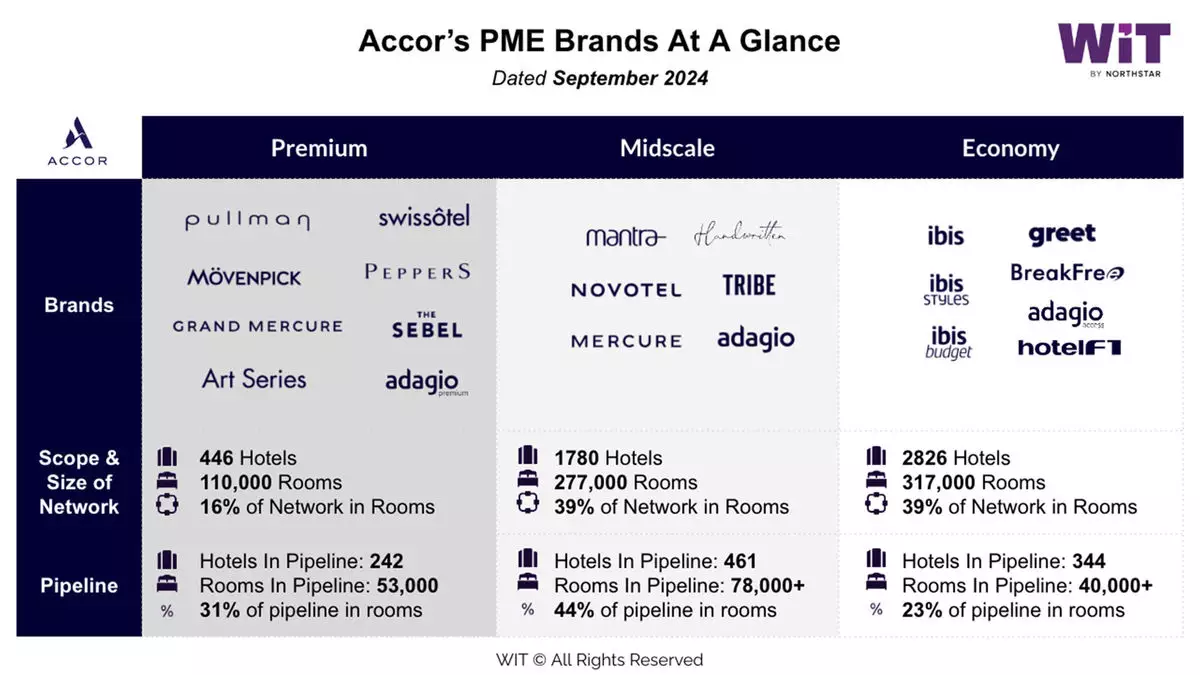The hospitality industry is undergoing a significant transformation as travelers increasingly prioritize their health and well-being. This paradigm shift, highlighted during a recent conversation with Benoit Racle and Jean-Yves Minet, highlights the changing dynamics of consumer behavior. With over 21 brands representing 90% of Accor’s hotel portfolio, the global brand presidents showcased their commitment to understanding and adapting to these trends. It is evident that alongside the growing interest in health, there is also an escalating awareness regarding sustainability in travel choices.
Racle and Minet embody the evolving archetype of modern travelers, prioritizing wellness and a healthy lifestyle. Their choices, from avoiding caffeine to opting for sparkling water, reflect a broader trend among travelers who are more mindful of their consumption patterns. This shift is not only about personal health but also about integrating well-being into the broader travel experience without compromising the joys of exploration. The emphasis on health is no longer just an option; it is becoming a prerequisite for brands that wish to thrive in today’s hospitality landscape.
Recent statistics illustrate this inclination towards health and wellness among consumers. A report from McKinsey & Co. indicates that the global consumer-wellness market is worth a staggering $1.8 trillion, with the U.S. market alone having reached $480 billion, and growing at an annual rate of 5% to 10%. It is noteworthy that as many as 82% of U.S. consumers regard wellness as a crucial aspect of their daily lives. Such data elucidate that wellness is no longer a niche market but a mainstream demand, impacting choices made by consumers in sectors ranging from hospitality to retail.
This preoccupation with health is particularly pronounced among younger demographics. Racle highlighted that smoking rates among U.S. youths have dropped dramatically, alongside a notable decline in alcohol consumption. This shift is indicative of a lifestyle that values health and well-being with alternatives gaining traction, such as alcohol-free bars in urban centers. The hospitality sector must innovate to create environments that cater to guests who are increasingly looking for options that align with their lifestyle choices.
In addition to wellness, sustainability is becoming an integral part of the conversation surrounding travel. Minet shared insights from his work in emerging markets, noting the rapid evolution of the middle class’s understanding and appreciation for environmental issues. This awareness is not confined to wealthier nations; it is a global phenomenon transcending geographical boundaries. The demand for sustainable practices in hospitality is increasingly influential in consumers’ brand loyalty and purchasing decisions.
As Racle succinctly stated, “Consumers are making choices for the right brand with their wallet,” suggesting that a brand’s commitment to sustainability can significantly influence its appeal. Travelers are now more inclined to support companies that prioritize environmental responsibility, and hospitality brands must take this into account when shaping their business models. Incorporating sustainable practices in energy usage, waste management, and sourcing local products not only reduces the ecological footprint but also enriches the guest experience.
It is clear that hospitality companies are at a crossroads: they must adapt to these evolving consumer demands or risk becoming obsolete. The challenge ahead lies in innovating without sacrificing the essence of what makes travel enjoyable. As Racle and Minet indicated, there is a pressing need to “rebuild atmosphere and ambience for people without the alcohol,” which poses an exciting opportunity for creativity within the industry.
The future of hospitality rests on the merging of wellness and environmental consciousness. Brands that honor these principles will likely find favor with the modern traveler. Whether it is through offering nutritious dining options, curated wellness retreats, or enhancing eco-friendly practices, there is a burgeoning opportunity for brands to prosper by aligning with the core values of their guests.
The burgeoning focus on wellness and sustainability is reshaping the hospitality landscape. As demand continues to rise, businesses must evolve, adopt innovative practices, and remain attuned to the desires of the conscious traveler to stay relevant in this contested arena.


Leave a Reply